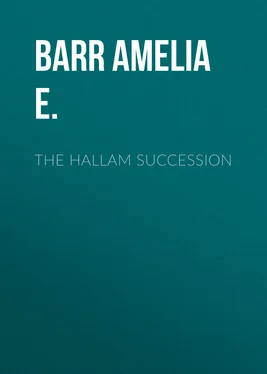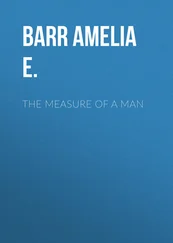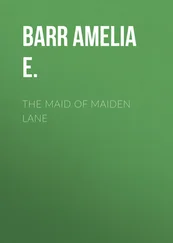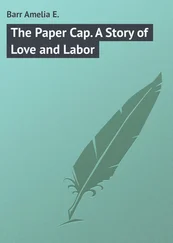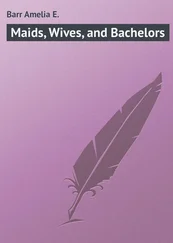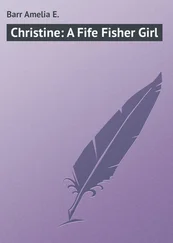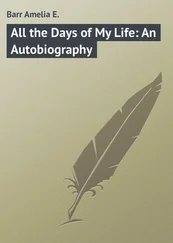Amelia Barr - The Hallam Succession
Здесь есть возможность читать онлайн «Amelia Barr - The Hallam Succession» — ознакомительный отрывок электронной книги совершенно бесплатно, а после прочтения отрывка купить полную версию. В некоторых случаях можно слушать аудио, скачать через торрент в формате fb2 и присутствует краткое содержание. Жанр: foreign_prose, foreign_antique, на английском языке. Описание произведения, (предисловие) а так же отзывы посетителей доступны на портале библиотеки ЛибКат.
- Название:The Hallam Succession
- Автор:
- Жанр:
- Год:неизвестен
- ISBN:нет данных
- Рейтинг книги:5 / 5. Голосов: 1
-
Избранное:Добавить в избранное
- Отзывы:
-
Ваша оценка:
- 100
- 1
- 2
- 3
- 4
- 5
The Hallam Succession: краткое содержание, описание и аннотация
Предлагаем к чтению аннотацию, описание, краткое содержание или предисловие (зависит от того, что написал сам автор книги «The Hallam Succession»). Если вы не нашли необходимую информацию о книге — напишите в комментариях, мы постараемся отыскать её.
The Hallam Succession — читать онлайн ознакомительный отрывок
Ниже представлен текст книги, разбитый по страницам. Система сохранения места последней прочитанной страницы, позволяет с удобством читать онлайн бесплатно книгу «The Hallam Succession», без необходимости каждый раз заново искать на чём Вы остановились. Поставьте закладку, и сможете в любой момент перейти на страницу, на которой закончили чтение.
Интервал:
Закладка:
"Squire, do you know that your niece thinks John Wesley was a High-Churchman?"
"What I meant, sir, was this: Wesley had very decided views in favor of the Episcopacy. He would suffer none to lay unconsecrated hands upon the sacraments; and in personal temperament, I think he was as ascetic as any monk."
"Do you think, then, that if he had lived before the Reformation he might have founded an order of extreme rigor, say, like La Trappe?"
"No, indeed, sir! He might have founded an order, and it would, doubtless, have been a rigorous one; but it would not have been one shut up behind walls. It would have been a preaching order, severely disciplined, perhaps, but burning with all the zeal of the Redemptionist Fathers on a mission."
The squire patted the little hand, which was upon his knee, and proudly asked,
"Now, then, parson, what does ta say to that?"
"I say it would be a very good description of 'the people called Methodists' when they began their crusade in England."
"It is always a good description of them when they have missionary work to do. We have had brave soldiers among the Fontaines, and wise statesmen, also; but braver than all, wiser than all, was my grandfather Fontaine, who went into the wilderness of Tennessee an apostle of Methodism, with the Bible in his heart and his life in his hand. If I was a man, I would do as Richard always does, lift my hat whenever his name is mentioned."
"Such ministers are, indeed, spiritual heroes, Miss Fontaine; men, of whom the world is not worthy."
"Ah, do not say that! It was worthy of Christ. It is worthy of them. They are not extinct. They are still preaching—on the savannas of the southwest—on all the border-lands of civilization—among the savages of the Pacific isles, and the barbarians of Asia and Africa; voices crying in the wilderness, 'God so loved the world, that he gave his only begotten Son' for its salvation. A Methodist preacher is necessarily an evangelist. Did you ever happen to read, or to hear Wesley's 'charge' to his preachers?"
"No, I never heard it, Miss Fontaine."
"If ta knows it, Phyllis, dearie, let him hev it. I'se warrant it'll fit his office very well."
"Yes, I know it; I have heard it many a time from my grandfather's lips. In his old age, when he was addressing young preachers, he never said any thing else to them. 'Observe,' charged Wesley, 'it is not your business to preach so many times, or to take care of this or that society, but to save as many souls as you can.'"
"Now, then, that's enough. Phyllis, dearie, lift t' candle and both o' you come wi' me; I've got summat to say mysen happen."
He had that happy look on his face which people wear who are conscious of having the power to give a pleasant surprise. He led them to a large room above those in the east wing which were specially his own. It was a handsome bedroom, but evidently one that was rarely used.
"Look 'ee here, now;" and he lifted the candle toward a picture over the fire place. "Who do you mak' that out to be?"
"John Wesley," said Phyllis.
"For sure; it's John Wesley, and in this room he slept at intervals for thirty years. My great grandfather, Squire Gregory Hallam, was a Methodist—one o' t' first o' them—and so you see, Phyllis, my lass, you hev come varry naturally by your way o' thinking."
The rector was examining the face with great interest. "It is a wonderful countenance," he said; "take a look at it, Miss Fontaine, and see if it does not bear out what I accidentally said about La Trappe."
"No, indeed, it does not! I allow that it is the face of a refined, thorough-bred ecclesiastic. He was the son of the Church."
"Yes; he came, indeed, from the tribe of Levi."
"It is a fine, classical, clearly-chiseled face—the face of a scholar and a gentleman."
"A little of the fanatic in it—admit that. I have seen pictures of grand inquisitors, by Velasquez, which resemble it."
"You must not say such things, my dear rector. Look again. I admit that it is a clever face, and I have seen it compared to that of Richelieu and Loyola, as uniting the calm iron will and acute eye of the one with the inventive genius and habitual devotion of the other; but I see more than this, there is the permeation of that serenity which comes from an assurance of the love of God."
"God love thee, Phyllis! Thou'lt be makkin' a Methodist o' me, whether I will or no. I hed no idea afore there was a' that in t' picture. I wont stay here any longer. Thanks be! It's sleeping-time, missee."
"I should like to sleep in this room, squire."
"Why, then, rector, thou shall. A bit o' fire and some aired bed-clothes is a' it wants. Thou's sure to sleep well in it, and thou'lt hev t' sunrise to wake thee up."
And Phyllis thought, when she saw him in the morning, that he had kept some of the sunshine in his face. He was walking up and down the terrace softly humming a tune to himself, and watching the pigeons promenade with little, timid, rapid steps, making their necks change like opals with every movement. The roofs and lintels and the soft earth was still wet, but the sun shone gloriously, and the clear air was full of a thousand scents.
"How beautiful all is, and how happy you look," and Phyllis put her hand in the rector's, and let him lead her to the end of the terrace, where she could see the green country flooded with sunshine.
"Did you sleep well in Wesley's chamber?"
"I slept very well; and this morning the pleasantest thing happened. Upon a little table I saw a Bible lying, and I read the morning lesson, which was a very happy one; then I lifted another book upon the stand. It was 'The Pilgrim's Progress;' and this was the passage I lighted upon: 'The Pilgrim they laid in a large upper chamber facing the sunrising. The name of the chamber was Peace.' There was a pencil-mark against the passage, and I fancy John Wesley put it there. It was a little thing, but it has made me very happy."
"I can understand."
"God bless you, child! I am sure you can."
CHAPTER III
"He shall call upon me, and I will answer him: I will be with him in trouble; I will deliver him, and honor him."
Psa. xci, 15."Alas for hourly change! Alas for all
The loves that from his hand proud Youth lets fall,
Even as the beads of a told rosary!"
That very day Richard received a letter from Bishop Elliott. He was going to the Holy Land and wished Richard to join him in Rome, and then accompany him to Palestine. Richard preferred to remain at Hallam, but both Elizabeth and Phyllis thought he ought to respond to the Bishop's desire. He was an aged man among strangers, and, apart from inclination, it seemed to be a duty to accede to his request. So rather reluctantly Richard left Hallam, half-inclined to complain that Elizabeth was not sorry enough to part with him. In truth she was conscious of feeling that it would be pleasant to be a little while alone with the great joy that had come to her; to consider it quietly, to brood over it, and to ask some questions of her soul which it must answer very truthfully.
People of self-contained natures weary even of happiness, if happiness makes a constant demand upon them. She loved Richard with the first love of her heart, she loved him very truly and fondly, but she was also very happy through the long summer days sitting alone, or with Phyllis, and sewing pure, loving thoughts into wonderful pieces of fine linen and cambric and embroidery. Sometimes Phyllis helped her, and they talked together in a sweet confidence of the lovers so dear to them, and made little plans for the future full of true unselfishness.
In the cool of the day they walked through the garden and the park to see Martha; though every day it became a more perplexing and painful duty. The poor woman, as time went by, grew silent and even stern. She heeded not any words of pity, she kept apart from the world, and from all her neighbors, and with heart unwaveringly fixed upon God, waited with a grand and pathetic patience the answer to her prayers. For some reason which her soul approved she remained in the little chapel with her petition, and the preacher going in one day, unexpectedly, found her prostrate before the communion table, pleading as mothers only can plead. He knelt down beside her, and took her hand, and prayed with her and for her.
Читать дальшеИнтервал:
Закладка:
Похожие книги на «The Hallam Succession»
Представляем Вашему вниманию похожие книги на «The Hallam Succession» списком для выбора. Мы отобрали схожую по названию и смыслу литературу в надежде предоставить читателям больше вариантов отыскать новые, интересные, ещё непрочитанные произведения.
Обсуждение, отзывы о книге «The Hallam Succession» и просто собственные мнения читателей. Оставьте ваши комментарии, напишите, что Вы думаете о произведении, его смысле или главных героях. Укажите что конкретно понравилось, а что нет, и почему Вы так считаете.
